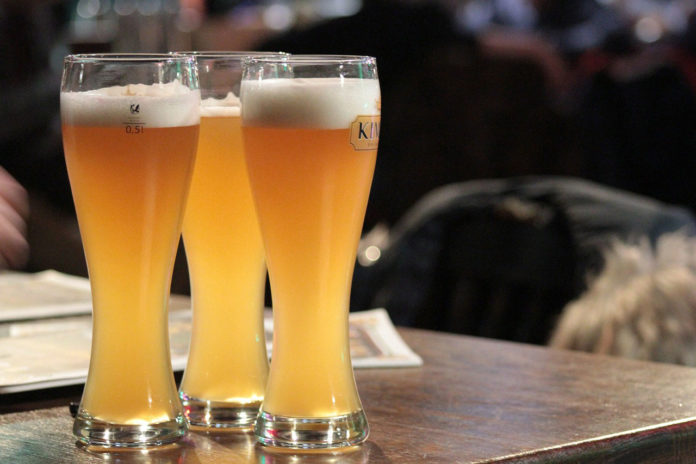Underage drinking is the most common form of substance abuse among today’s teens, and it raises many severe risks to both health and safety. About 90 percent of teen drinking is considered binge drinking due to the speed and quantity of consumption.
A new Yale study suggests that binge drinking by teenagers in their senior year can lead to dangerous behaviors later in life. For example, driving while impaired (DWI) and riding with an impaired driver (RWI).
Moreover, the study also suggests that such teenagers are more likely to believe that their parents know about their leisure activities and who their friends are — and whether the parents approve or disapprove of alcohol use — can have life-saving effects.
Lead author Federico Vaca, M.D., M.P.H., professor of emergency medicine and director of the Yale Developmental Neurocognitive Driving Simulation Research Center, said, “There is great prevention power in intentional parenting, and a strong, reliable, mutual relationship here can make all the difference in the world, including helping to identify the development of youth alcohol/drug use disorder and the need for specialized treatment services for addiction.”
The study, conducted in collaboration with the National Institutes of Health (NIH) and Colorado State University, analyzed data from the NEXT Generation Health Study that followed 2,785 young people over seven years.
Scientists observed the protective effect of parental monitoring and teen awareness of parents’ attitudes about alcohol endured as much as four years after leaving secondary school.
Vaca said, “As kids get older, we tend to step away from them. We think: ‘They’ve got this.’ But if kids think we approve or disapprove of them drinking, that can have a powerful effect. This is a precious opportunity to bolster parenting practices like parent monitoring and parent support for not using alcohol, but with a focus on intentionally strengthening the teen-parent relationship.”
Young people who binge in 12th grade were, two years later, six times more likely to drive while impaired than someone who did not binge drink, and four years later, more than twice as likely to drive while intoxicated. These teens were also more likely to ride with an impaired driver and to experience alcohol-related blackouts and extreme binge drinking in subsequent years.
But the study pointed out that ongoing parental practices could be protective against DWI, RWI, and blackouts once adolescents transition from high school into early adulthood. Parents can make clear rules for their teens. They can talk candidly about alcohol, set expectations, and enforce the rules.
The outcomes suggest that- if teens in 12th grade knew that their parents disapproved of drinking, it decreased the odds of their driving while impaired by 30% four years later and of riding with an impaired driver by 20% one year later. Parental support for not using alcohol also reduced the odds of blackout by 20%.
Vaca said, “A key take-home message here is: Just because kids are getting older, it doesn’t mean parents should stop inquiring about where they are going, who they will be with, and how they are spending their money. Parents should continue to be intentional about their relationships with their teens, staying connected and mindful about how their teen spends his or her free time. This could make all the difference.”
Journal reference:
- Federico E. Vaca, et al. Longitudinal Associations of 12th-Grade Binge Drinking With Risky Driving and High-Risk Drinking. DOI: 10.1542/peds.2018-4095
